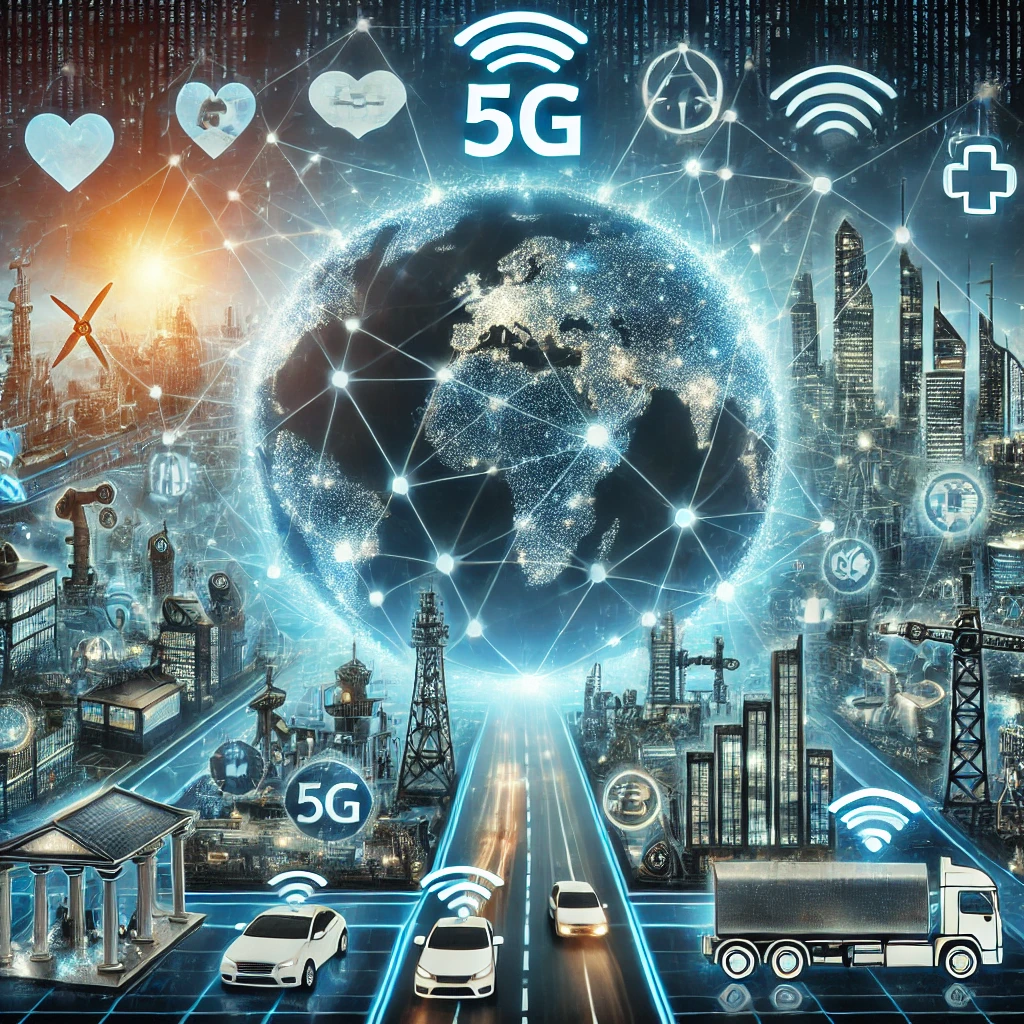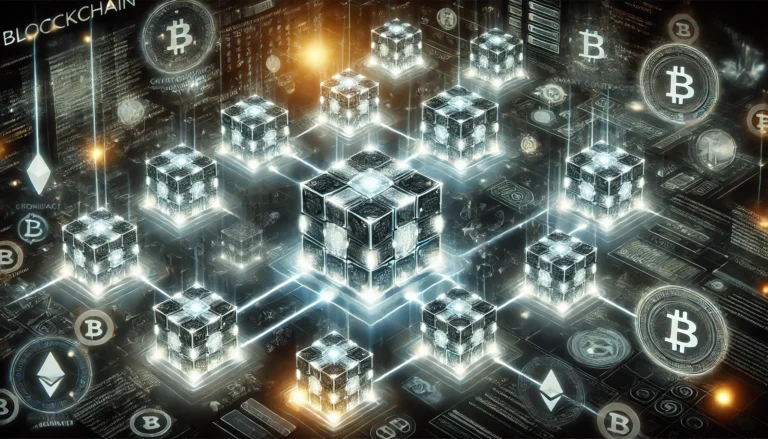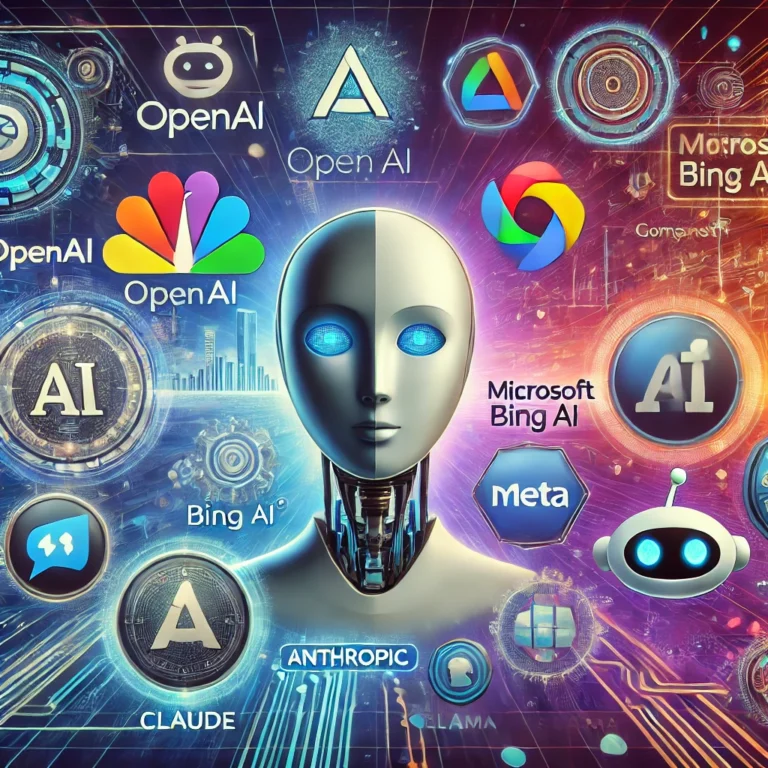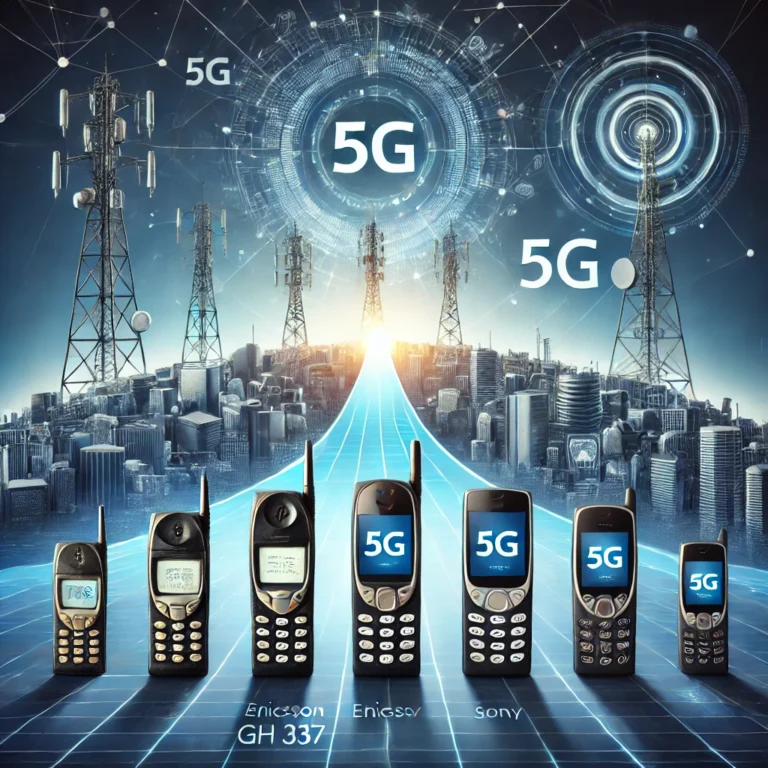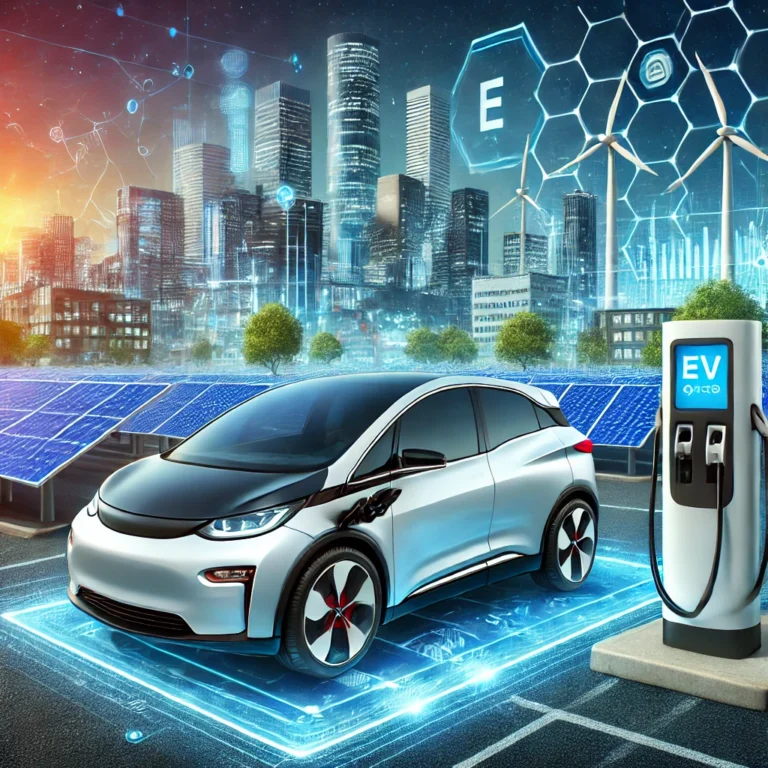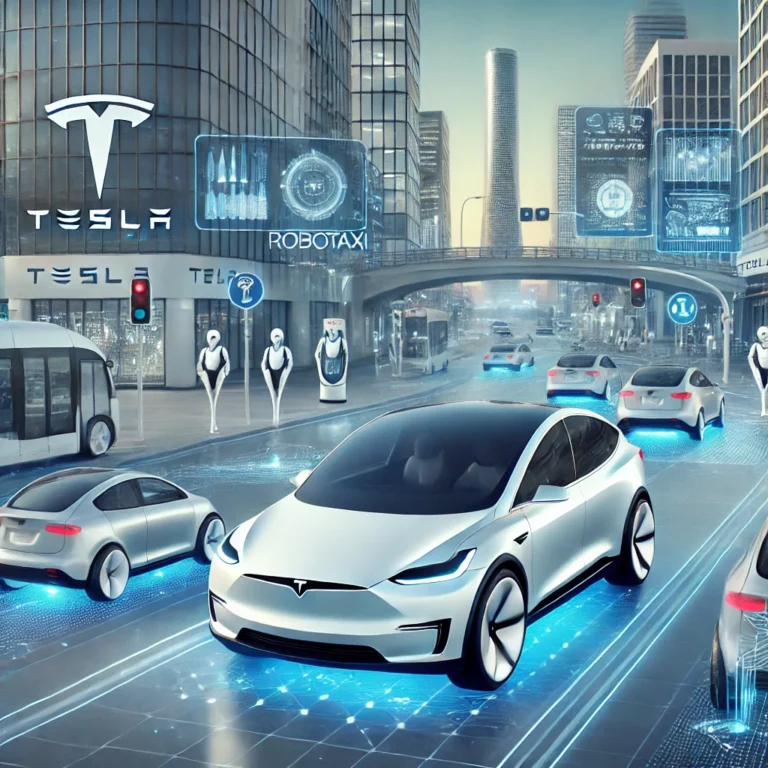The Impact of 5G Technology on the Global Economy: A Comprehensive Analysis
The global rollout of 5G technology is not just a leap forward in telecommunications but a monumental shift that promises to reshape entire industries, economies, and the way we live and work. As the successor to 4G LTE, 5G offers faster data speeds, ultra-low latency, and the capacity to connect billions of devices simultaneously. This breakthrough technology has the potential to drive economic growth, revolutionize industries, and foster innovation in ways never before seen. But what exactly is the economic impact of 5G technology, and how will it transform key sectors of the economy?
In this comprehensive essay, we’ll dive deep into the economic implications of 5G, exploring its impact on various industries, its potential to create jobs, how it will fuel innovation, and what it means for global economic competitiveness.
Understanding 5G Technology and Its Capabilities
Before we delve into the economic impact, it’s essential to understand what makes 5G stand out compared to previous generations of mobile technology.
- Faster Data Speeds: 5G promises download speeds up to 100 times faster than 4G, making real-time video streaming, downloads, and uploads nearly instantaneous.
- Ultra-Low Latency: One of the defining features of 5G is its low latency—typically under one millisecond—which means there is minimal delay in data transmission. This is crucial for applications like autonomous driving, remote surgeries, and virtual reality.
- Massive Connectivity: With 5G, millions of devices can be connected at the same time in a small area. This is vital for the Internet of Things (IoT), where everything from smart appliances to industrial sensors needs to be connected.
- Network Slicing: 5G allows for the creation of virtual networks, or “slices,” each customized for specific applications. For example, one slice could be optimized for autonomous vehicles, while another is tailored for medical devices.
These capabilities set the stage for 5G to be a major driver of economic growth, influencing everything from smart cities and automated factories to consumer entertainment and remote work.
The Economic Impact of 5G Technology
1. Fueling Innovation Across Industries
The rollout of 5G technology is expected to spark a new wave of innovation across industries. 5G will act as the backbone for emerging technologies like artificial intelligence (AI), blockchain, virtual reality (VR), augmented reality (AR), and the Internet of Things (IoT), allowing them to reach their full potential.
- Smart Cities and Infrastructure: 5G will play a pivotal role in developing smart cities by enabling real-time data collection and analysis for everything from traffic management to energy efficiency. Cities can use 5G to manage resources more effectively, improving public services and reducing costs.
- Autonomous Vehicles: The automotive industry will be significantly transformed by 5G. The ultra-low latency and high-speed communication will enable autonomous vehicles to communicate with each other and surrounding infrastructure instantly, improving road safety and reducing traffic congestion. According to a report by McKinsey, 5G could contribute up to $200 billion to the automotive industry by 2030.
- Healthcare: 5G will revolutionize the healthcare sector by enabling telemedicine, remote surgeries, and AI-powered diagnostics. For example, doctors could perform surgeries remotely using robotic arms controlled via a 5G network. Real-time data sharing will also improve patient care by allowing for quicker diagnosis and treatment.
- Manufacturing and Industry 4.0: 5G will drive the next industrial revolution, often referred to as Industry 4.0. In smart factories, 5G will enable seamless communication between machines, robots, and sensors, allowing for more efficient production processes, reduced downtime, and enhanced supply chain management.
- Entertainment and Media: The entertainment industry will see a massive boost from 5G, particularly in areas like virtual reality (VR), augmented reality (AR), and cloud gaming. Consumers will experience 4K/8K streaming, and real-time interactive content, which will enhance the way we consume media and entertainment.
2. Job Creation and Economic Growth
The 5G economy is expected to create millions of new jobs and significantly contribute to global economic growth. According to a study by IHS Markit, 5G will generate $13.2 trillion in global economic output and create 22 million jobs by 2035. These jobs will span across industries, including technology, construction, manufacturing, and services.
- Construction and Infrastructure: The deployment of 5G networks will require the construction of new infrastructure, including cell towers, small cells, and fiber-optic cables. This will create jobs in construction, engineering, and network maintenance.
- Technology Sector: As businesses and industries adopt 5G technology, there will be an increasing demand for skilled workers in software development, data analytics, network engineering, and cybersecurity.
- Telecommunications: The telecom industry will see significant job growth as companies work to deploy and maintain 5G networks globally. According to Deloitte, the 5G rollout could create over 1 million jobs in the U.S. alone by 2025.
3. Enhancing Productivity and Efficiency
One of the most significant economic impacts of 5G will be its ability to enhance productivity across industries. 5G networks will enable businesses to automate processes, reduce downtime, and make more informed decisions based on real-time data.
- Supply Chain Management: 5G will allow for real-time tracking of goods, making supply chains more efficient and reducing the risk of delays or losses. This will lead to cost savings for businesses and lower prices for consumers.
- Remote Work and Collaboration: The rise of 5G will support the remote work trend by enabling faster and more reliable internet connections. Employees will be able to collaborate in real-time, regardless of location, improving productivity and work-life balance. The COVID-19 pandemic has already shown the potential for remote work to reshape economies, and 5G will only accelerate this trend.
- Farming and Agriculture: Smart farming, powered by 5G, will allow farmers to use sensors, drones, and AI to monitor crops and livestock in real-time. This will lead to more efficient resource usage, higher crop yields, and reduced environmental impact. The agricultural sector could see a $32 billion boost in productivity thanks to 5G.
5G’s Impact on Global Competitiveness
1. Leadership in Technology and Innovation
Countries that lead the 5G rollout will position themselves as leaders in technology and innovation, giving them a significant economic advantage over lagging nations. 5G is expected to drive innovation ecosystems by enabling startups and entrepreneurs to develop new products and services that rely on fast, reliable, and ubiquitous internet access.
- United States vs. China: The race for 5G dominance has become a central part of the broader economic competition between the United States and China. Both countries are heavily investing in 5G infrastructure and innovation. China’s Huawei is a global leader in 5G technology, while U.S. companies like Qualcomm and Verizon are also pushing forward in the space. The winner of this race could dictate the future of the global tech economy.
2. Economic Inequality and the Digital Divide
While 5G promises to bring immense economic benefits, there is a risk that it could exacerbate economic inequality by creating a wider digital divide. Rural areas and developing nations may struggle to implement the necessary infrastructure to support 5G, leaving them behind in the global economy.
Governments and businesses will need to work together to ensure that 5G technology is accessible to all, regardless of location or socioeconomic status. This could involve investing in public-private partnerships and subsidizing infrastructure development in underserved areas.
Challenges to the 5G Economy
While the potential economic benefits of 5G are vast, several challenges could hinder its widespread adoption.
1. High Infrastructure Costs
Building the necessary infrastructure for 5G is a costly endeavor, especially in rural areas and developing countries. 5G networks require a higher density of cell towers and small cells compared to previous generations of wireless technology, driving up the cost of deployment.
2. Cybersecurity Risks
As 5G connects billions of devices, it opens up new vulnerabilities for cyberattacks. Businesses and governments will need to invest in robust cybersecurity measures to protect sensitive data and prevent breaches. The Internet of Things (IoT), in particular, presents a significant risk, as many connected devices may lack adequate security measures.
3. Regulatory and Policy Challenges
The deployment of 5G technology also faces regulatory hurdles. Governments around the world will need to create policies that encourage investment in 5G infrastructure while ensuring fair competition and protecting consumers’ rights. Spectrum allocation, privacy concerns, and international standards will all play a role in shaping the 5G economy.
The Future of 5G and the Global Economy
As we look to the future, the impact of 5G technology on the global economy will only grow. The 5G revolution is still in its early stages, and as more industries adopt this transformative technology, we can expect to see even greater economic benefits.
- 6G and Beyond: While 5G is just beginning to be deployed, researchers are already looking ahead to 6G technology. Although it’s still years away, 6G promises to build on the foundations laid by 5G, offering even faster speeds, lower latency, and more advanced applications.
- Sustainability and Green Growth: The integration of 5G with sustainable practices could lead to greener economic growth. 5G will enable smart grids, energy-efficient buildings, and cleaner transportation systems, reducing the carbon footprint of industries around the world.
In conclusion, 5G technology is set to be one of the most significant drivers of economic growth in the coming decades. From creating millions of jobs to enhancing productivity across industries, the potential economic impact of 5G is enormous. It will fuel innovation, drive smart cities, and reshape global competitiveness.
However, for these benefits to be fully realized, governments, businesses, and individuals must work together to overcome the challenges that come with 5G adoption, from high infrastructure costs to cybersecurity risks. As we move into the 5G era, the world stands on the brink of a technological and economic transformation—one that promises to change the way we live, work, and connect.
